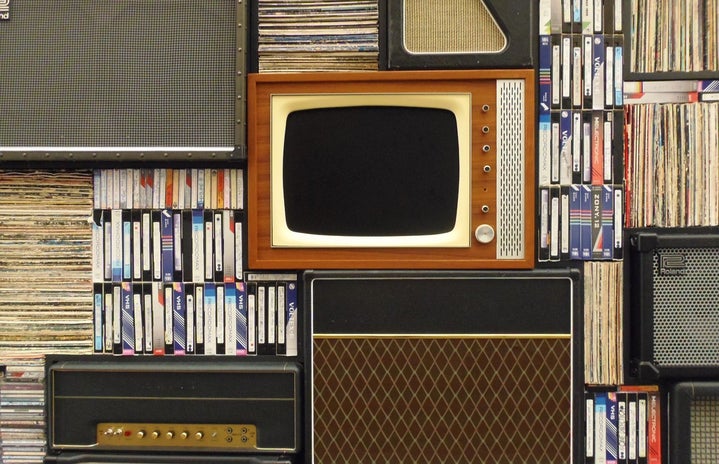Edited By: Malavika Suresh
Waves crashing onto the beach, corsets, and petticoats: the initial appeal of lesbian period dramas are evident, but the desire for them comes from a desire to see queer individuals and their stories represented in both film and history, where they have so often been marginalised and forgotten. The past few years have seen an influx of these movies and TV series on our screen, from 2015’s Carol to 2020s eagerly awaited Ammonite. While these period dramas are great, there is a dire need for contemporary lesbian dramas in today’s society.
There is no doubt – due to the emergence of lesbian period dramas, lesbian history, which had for so long been erased or ignored, is finally being acknowledged the way it should be. To think that Yorkshire-based landowner Anne Lister’s diaries could have once been burnt but now garners love and appreciation in the form of Gentleman Jack, a BBC-HBO historical TV drama series is remarkable. Created by Sally Wainwright, the series is based on the numerous diaries written by Anne, played by Suranne Jones. It showcases her love of life and of women with unabashed joy. The story portrays romantic moments shared by lesbians in a way that is hardly seen on TV.
However, it makes one wonder as to why there are not more modern lesbian romances being produced. It could be because these dramas find their erotic element in the forbidden status of lesbianism. In The Favourite, we witness Olivia Colman’s Queen Anne, despite the glares from her court on her ability to rule, keeping busy letting Emma Stone’s Abigail play with her rabbits and play under her skirt. In Lizzie, we witness Miss Borden (Chloë Sevigny) and her servant Bridget (Kristen Stewart) hiding their love from the glare of her abusive father. However, despite such harsh prejudices, we do not see these dramas turn into a Brokeback Mountain-esque narration on repressed genders and sexuality. They are often quite humorous: in Wild Nights With Emily, Dickenson, played by Molly Shannon, hands her lover Sue (Susan Ziegler) a poem she wrote for her – Sue reads it out loud, “One cup flour, add milk–”, it appears Emily has written a shopping list or a recipe. “No, it’s on the other side,” she says, hurriedly.
This current wave of lesbian period dramas has its roots in a contemporary desire to re-establish queer histories that often have been erased. Some scholars have found that the poems written by Emily Dickinson, addressed to a lover named Sam, have the name Sue, literally erased, underneath it. Hence, this is where Wild Nights With Emily takes its narrative. Sure, sometimes, queer histories have been invented or exaggerated. While it is probable that Lizzie Borden did murder her parents by hacking them into pieces, there is little evidence that it was because she wanted to be with her servant.
Specific moments in history aside, these period dramas offer a distant exploration of lesbianism. While they might hold divided views on the LGBTQ movement today, the vast majority of the population would agree that gay figures from history faced discrimination. They can have the privilege to watch these films, look back with nostalgic righteousness, and pat themselves on the back, feeling retrospectively progressive. When faced with the same plotlines and themes in modern stories of lesbianism, this righteousness tends to vanish. They are more prone to be unsympathetic to contemporary queer stories because the distance of nostalgia is decreased.
While the production of queer period dramas is undoubtedly a victory, they often allow people to distract ourselves from the undeniable prejudices lesbians still face today. We need a more diverse cinematic universe of contemporary portrayals of lesbian, and other LGBTQ romances, not just the ones featuring lesbians in tight corsets and heavy bonnets.



